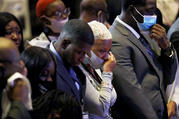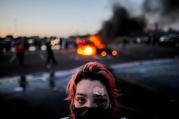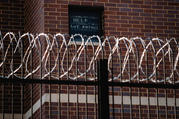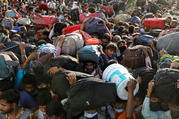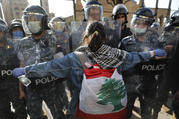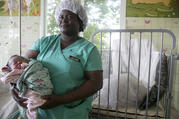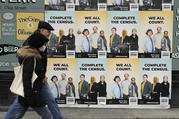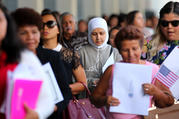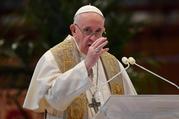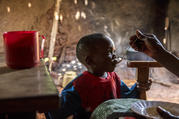Loading...
Click here if you don’t see subscription options
Click here if you don’t see subscription options
Politics & Society Dispatches
June 12, 2020
Minneapolis police have used force against African-American residents seven times more often than against white residents over the past five years, reports Kevin Clarke.
Politics & Society News
Bishops call racism a ‘real and present danger’ in aftermath of death of George Floyd in Minneapolis
May 29, 2020
“We cannot turn a blind eye to these atrocities and yet still try to profess to respect every human life,” the bishops said. “We serve a God of love, mercy, and justice.”
Politics & Society News
May 21, 2020
Another near-invisible community similarly faces a serious and disproportionate threat from Covid-19; the people who live and work behind bars in the United States.
Politics & Society Dispatches
May 21, 2020
On March 25, hoping to suppress the spread of the coronavirus, India began the world’s largest lockdown, affecting 1.3 billion people. But the sudden move to close down all but essential services threw millions out of work and began a desperate exodus of migrant and day laborers out of the big
Politics & Society Dispatches
May 20, 2020
As much as 75 percent of Lebanon’s population is in need of emergency assistance.
Politics & Society Dispatches
May 19, 2020
Health work during a pandemic can be dangerous and the thought of falling ill themselves cannot be too far from the minds of medical and sanitation teams. But thousands of other relief and development staff and volunteers will face many of the same risks and fears.
Politics & Society Dispatches
May 01, 2020
The U.S. census has long had trouble counting groups like young children, reports Kevin Clarke, and the coronavirus is likely to throw the accuracy of the data into deeper doubt.
Politics & Society Dispatches
April 23, 2020
“We cannot let this moment of pandemic, which calls us all to unity as God’s children, become the occasion for further prejudice, exclusion and injustice.”
Faith Vatican Dispatch
April 12, 2020
Pope Francis said in an Easter Sunday message that the coronavirus epidemic could also be an opportunity for affluent societies to re-evaluate patterns of consumption and exploitation.
Politics & Society News
April 06, 2020
While the Covid-19 pandemic provokes a series of unprecedented measures, other ongoing challenges to human life and dignity—drought, famine, armed conflict and poverty among them—are not offering a time-out from the suffering they inflict.

